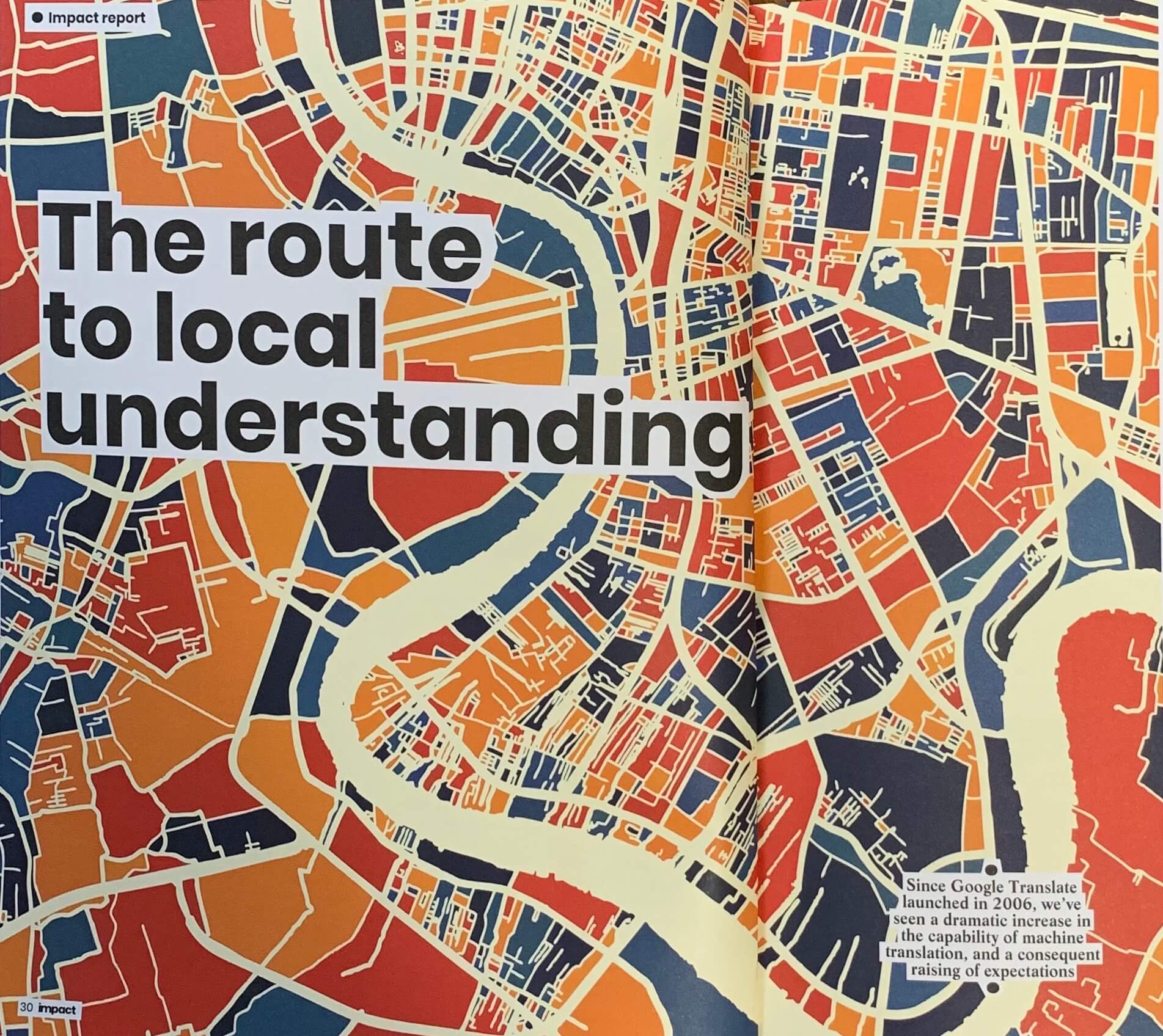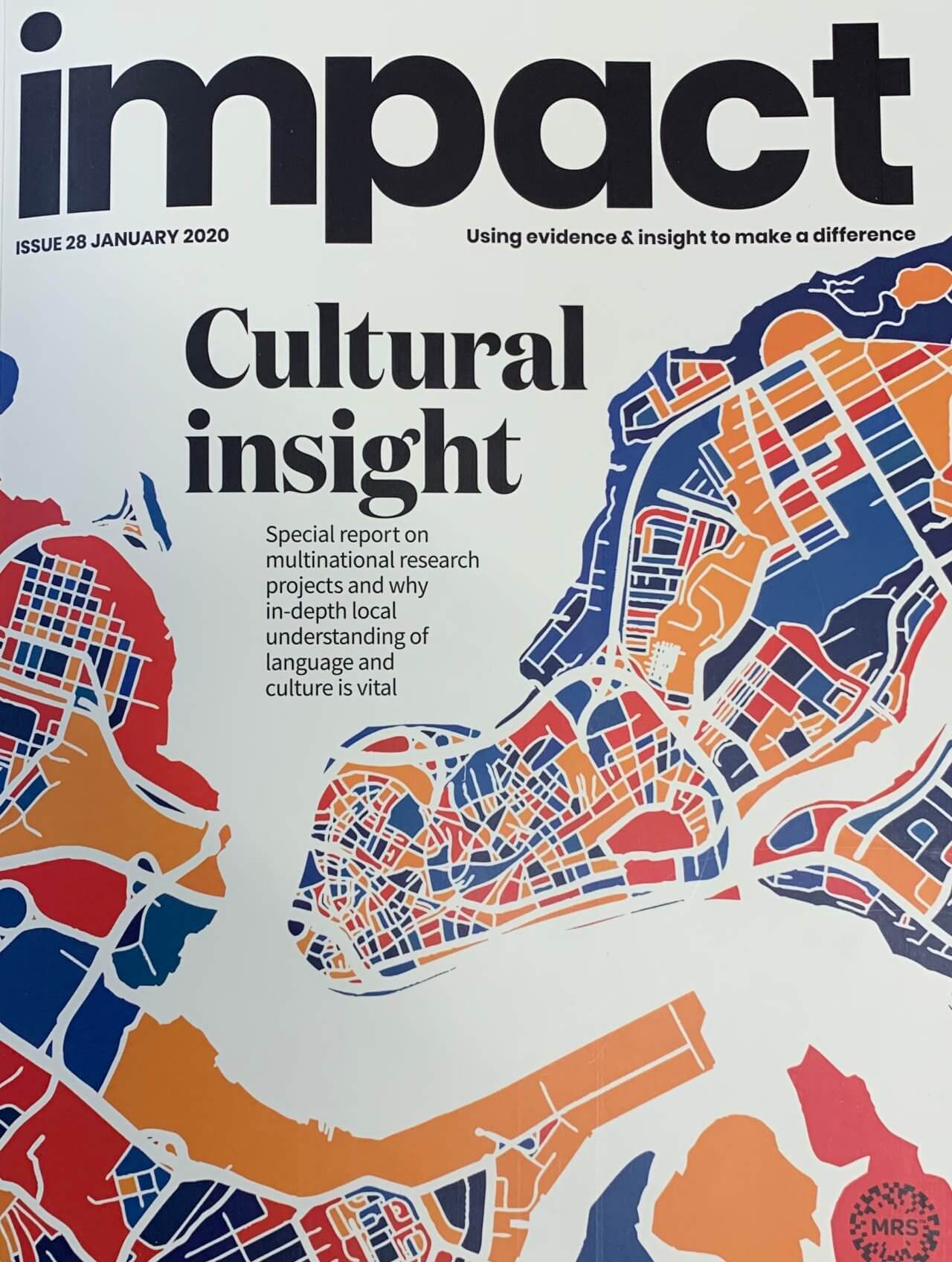Our Thoughts
Cultural insight with Impact
We’re delighted to feature in this month’s cover story for Impact from the MRS (Market Research Society).

As the article highlights, ‘For market research to yield genuine and accurate insights, cross-cultural understanding is essential…and requires considerable expertise…’
The search for meaning
“How many of you eat noodles for breakfast?” That was the question asked by Emily-Porter Salmon, associate director at cultural insight agency Sign Salad, in a meeting about the meaning of breakfast.
The clients, overwhelmingly European and American, whose business was built around selling stock cubes to make evening meals, did not.
Porter-Salmon showed a world map and pointed to the right-hand side. “Everyone on this side of the world has noodles for breakfast,” she said.
Intimacy with the communities being researched is an essential part of the methodology used by Sign Salad when it seeks to “change a cultural paradigm”, in the words of Alex Gordon, CEO. He argues that an essential part of cross-market research is finding out what is happening outside the boundaries that marketers have drawn around their brands, something that even the biggest data finds it hard to do.
In this case, a roomful of people suddenly stopped considering their product as a dinnertime food, and started to create new ways to market, package and sell it as a result. But the search for the meaning that other cultures give to brands, things and experiences is far broader.
Sign Salad specialises in semiotics and language analysis, and its team of semioticians has worked in 47 markets from “Mexico to South Korea and Sweden to Australia”. But most importantly to Gordon, many of them identify with more than one culture. “My colleague lived and worked in China. We have Arabic spoken in our office, Brazilian Portuguese…our semioticians are inhabiting two worlds simultaneously and so they can see the world through multifocal glasses, they are not dominated by the cultural paradigms of one culture – because one culture is not the truth. It’s just a lived experience,” Gordon says.
Sign Salad uses networks of local semioticians to uncover unexpected meaning and nuance that go beyond the brief: for example, a recent investigation of the indulgence associated with chocolate in local markets highlighted that it has religious significance in Turkey, where it is used as a gift at the end of Ramadan.
To turn these insights into actionable messages that resonate with Sign Salad’s global clients such as Pepsico, Unilever or Danone, the agency pairs its semioticians: one local, and one with the agency.
“We need to make sure we have a balance of local knowledge, but also objectivity. It’s an objective outsider, working in partnership with a subjective insider. This creates a beautiful balance to raise and ask the right sort of questions. This means we give informed responses to those questions, but we can challenge clients to think about markets in ways they haven’t thought about before,” Gordon adds.
This insider-outsider model is the link between hyperlogical insights, which may be interesting but not immediately actionable, and the brand’s need to identify a common base or set of products, but rethink the packaging, messaging or recipe for local tastes.
Gordon argues that globalisation has allowed many brands to achieve scale, but that is no longer an advantage in itself. Indeed, it may be a disadvantage, because local brands now have a lower barrier to entry in many markets, and instinctively understand local preferences, values, associations and nuances.
Understanding an international brand’s cultural relevance, and mapping that to the new opportunities, is the challenge for those clients that are struggling for, or want to deepen, their relevance or authenticity. “Large brands are not fighting for market share as much as fighting for cultural relevance. You cannot choose solely to be a global brand,” says Gordon.’
Read more from Impact here.

